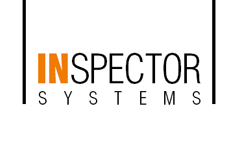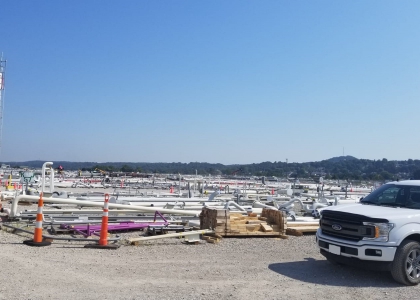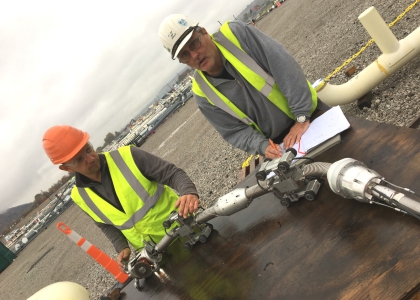Correction of selected welded joints for pipeline systems - As a subcontractor of the company ProForce Industrial LLC, which is a leading provider and supplier of integrity-based solutions for the inspection, testing and maintenance for the North American energy, oil and gas market, headquartered in Texas, USA, INSPECTOR SYSTEMS was awarded the contract for the correction of approx.
200 selected welded joints on almost 7,000 pre-manufactured pipe elements of a wide range of different shapes for the pipeline systems of a petrochemical plant complex in Pennsylvania / USA during the construction phase. This is a multi-billion dollar project and a plant structure of global scale where, at times, up to 6,000 workers are employed on site. Building contractor and future operator is one of the world's largest oil and gas companies.
The manufacture of polyethylene (PE), with the basic material ethylene, is planned. For this process, ethane produced from shale gas will be supplied by producers from the vicinity and will be converted to ethylene in an ethane fractioning system consisting of more than 200 components and a pipeline system measuring more than 150 km in length, for subsequent processing into PE plastic pellets in a polyethylene production line. Depending on the density, it is the main raw material required for the manufacture of flexible food packaging, hoses, foils and “more rigid” products such as buckets, garden furniture, boxes, etc.
Tight time frame is no problem
Due to very tight defined time window and the limited space available on construction sites, piping work of industrial construction projects of this size is normally split into two phases. The pre-manufacture and assembly of pipeline elements off site followed by the installation on site. It can happen that rework is required despite the greatest care taken during the manufacture of pipeline elements. In close cooperation with ProForce, INSPECTOR SYSTEMS was therefore entrusted with the task of reworking the corresponding welded joints of pipe elements so that these comply with the defined specifications. For example, the welding should not have any protruding sharp points as otherwise fibres would stick at the edges during subsequent transport of the warm granulate, which could then result in possible clogging of pipes and valves.
Robust Welding Robots and Manpower Ensure the Continuation of the Installation Work
Some of the pre-manufactured pipeline elements consisted of 6 m long pipes and multiple fittings of different types, such as elbows, T-pieces, vertical sections, etc. For this mega project, a total of five grinding and polishing robots from INSPECTOR SYSTEMS ranging from 6 to 18 inches were used on site, which completed their work in 16 different pipe diameters. To avoid any interruption in the ongoing installation, optimal organisation and handling were required to ensure that each pipe element to be reworked was at the right place at the right time. The robustness and precision of the used welding robots were crucial for ensuring a seamless work sequence as any downtime would have delayed the subsequent installation work. On the other hand, a highly qualified and experienced team of project engineers and service technicians was of immense importance. No question – the set requirements for the welding robots and the service were fully met by INSPECTOR SYSTEMS.



